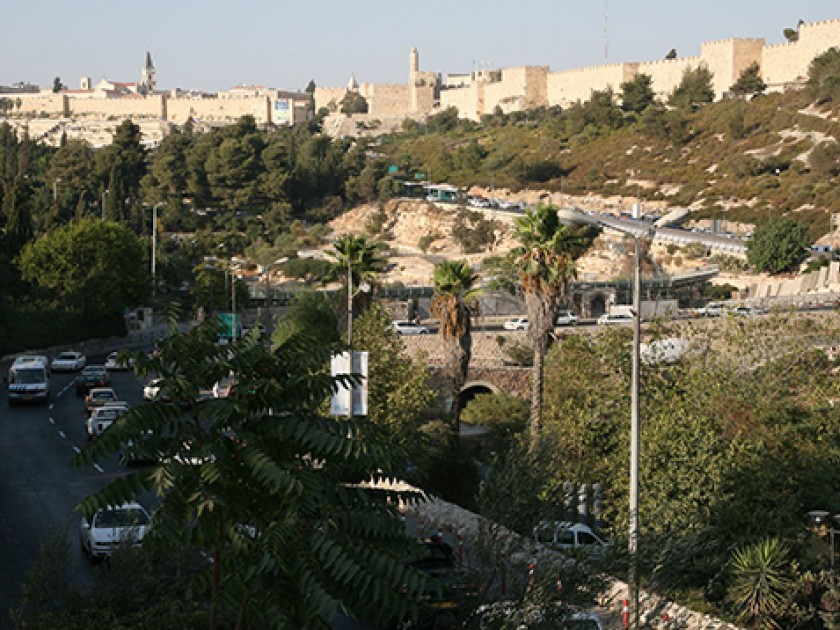
There have always been too many Jerusalems with too little real estate. Ancient Jewish tradition multiplied by two to create earthly and heavenly versions of the city, which were understood to tape measure the distance between the world we live in and the version so badly wanted that it can’t be navigated with the blue dot of an app but needs to be charted with the flow of the heart’s blood. Christian theologians derived a metaphor of a metaphor, and taught that Jerusalem was not only the reflection of the ground floor of regular life in the penthouse of spiritual yearning. For them, Jerusalem was a portable city. You could find it shining just over the next hill in a newly discovered land and then rediscover it in a superpower regaining its footing and its confidence. For the batty and brilliant William Blake, Jerusalem belonged not in the craggy hills and blurry sands of the Judean desert, but firmly planted in “England’s green and pleasant land.”
None of these descriptions, however rich, seem to quite capture the peculiar mix of joy, angst, and grandstanding that Jerusalem seems peculiarly disposed to elicit. President Trump’s decision to recognize Jerusalem as Israel’s capital and to begin the process of moving the embassy resembles the city itself. Recognizing Jerusalem as Israel’s capital, a fact everyone knows to be true that still felt startling, reflects a city where a Temple stood and where traffic is often at a standstill. For a long time mad and rational people thought of Jerusalem as the center of this world and the last stop on the train to the next one.
The best guide to this strange place called Jerusalem might be Yehuda Amichai, a poet whose work seems permanently suspended between the secular and sacred, between the bawdiness of bodies and the wandering truth of a religious faith orphaned by war and modernity. Which is just another way of saying that it’s Yerushalmi, Jerusalemite to its core, rhymes hewn from the eponymous stones. In one poem he writes that “Jerusalem is a see-saw,” awkwardly dipping between past and future in response to the dangerously shifting bulk of the present. In another it’s a “carousel, spinning round and round/from the Old City through every neighborhood and back to the Old/and you can’t get off.” Both a see-saw and a carousel are metaphors from the playground, but their stationary whirring troubles seam a city whose divisions never seem to heal, because they are so deeply ingrained that they haunt the surface of everyday life.
Amichai was troubled by how the multiplication of Jerusalems can lead to these divisions. In a poem from his last collection, Open Closed Open, he notes the grammatical oddity that Yerushalayim, the word for Jerusalem in Hebrew, features a plural suffix. This makes him uncomfortable, because “I am just “I” and not “I’s.” We may contain multitudes, as Whitman said, but the scale of a human life is humbler and more magnificent than stones and spires that stand at eternity’s attention. Jerusalem is a carousel and a see-saw and a million other things to billions of other people, but Amichai uses the intimacy of a poem to remind us that its story is only as good as the parenthesis of meaning we can set aside as refuges of understanding. Elsewhere Amichai called Jerusalem “the Venice of God,” and like that pigeon-haunted city, Jerusalem can feel both stonily solid and like it could all wash away when the restive hills rise and the dams of longing and resentment burst open.
There are no skyscrapers in Jerusalem, and it somehow manages to be both sprawling and dense. Like a poem whose next lines catch you by surprise but sound inevitable in retrospect, you’re not quite sure where the next street might lead, until you’re there, and you can’t imagine being anywhere else. There is a quiet on Saturday mornings that is its own kind of melody. None of these things depend on political decisions of a moment. The most beautiful and precious things rarely do.
Image credit: Flickr/BGNEGIN